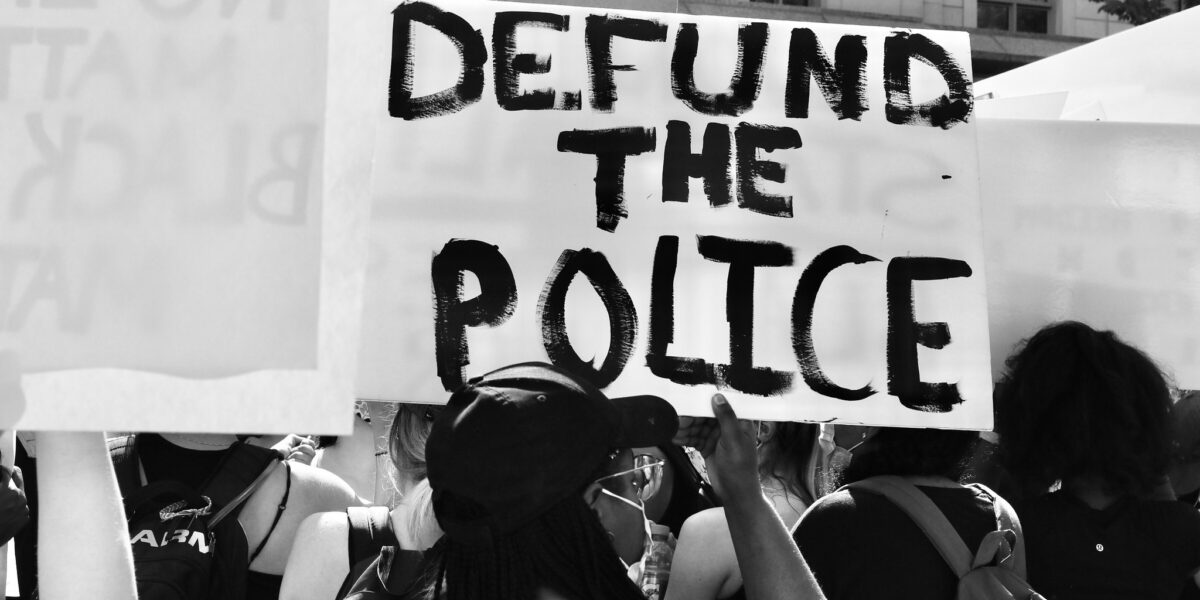The Canadian Association of Chiefs of Police (CACP) is a peculiar organization, to say the least: the more total funding police get year after year – including $18.5 billion for salaries, wages, benefits and non-salary operating expenditures in 2022 – the more the CACP complains about alleged police defunding.
Most recently, in early April, the CACP wrote a letter requesting a meeting with all provincial and territorial premiers to discuss certain forms of violence against police officers that have occurred since fall 2022.
Specifically, the letter states that “in the last six months, we have lost nine officers, eight of them to random violence,” while citing “the degradation of discourse around policing and police funding” as a factor that has “played a part in escalating the danger for our profession.”
It’s a provocative declaration, one which implies that proponents of defunding have created a deadly socio-political climate for police officers, but does it make any sense whatsoever?
At a fundamental level, any claim about causal links between discourse about defunding and the killings of police officers should presumably be applicable to other national settings in which defunding has been vigorously discussed since the May 2020 police killing of George Floyd. In the United States, however, FBI data shows that, nationwide, 60 police officers were killed in 2022, a figure that barely differs from the 57 who were killed in 2018.
If rhetoric about police defunding somehow drives lethal violence against officers, shouldn’t there have been far more killings in 2022 than 2018? And while it’s true that 73 officers were killed in 2021, one can hardly invoke defunding as an explanation since a number of pre-defunding years – such as 1995, 2001, 2011 and 2016 – were also characterized by anomalous spikes in police killings.
Shifting back to Canada, Statistics Canada data on persons charged with allegedly assaulting police shows almost no differences between 2018 and 2019 (144 persons charged per week), compared to 2020 and 2021 (139 persons charged per week).
Although the CACP letter makes no specific mention of figures on assaults, their concern about the “stresses and dangers” of policing would encompass alleged non-lethal assaults, the likes of which didn’t increase from 2018 to 2021 (the last year for which data is available), despite the notable rise of pro-defunding voices since 2020.
Statistics aside, the CACP position, if taken to its logical or illogical conclusion, would result in condemnation of certain police boards and police organizations.
In August 2020, for example, the Toronto Police Services Board produced a high-profile report featuring, among other things, a townhall summary with a subsection titled “Defund and Reinvest.” The summary notes that “a majority of participants called for the defunding of the Service.” It also included a document titled “Black Lives Matter Canada Demands” in which Black Lives Matter called for the Toronto police budget to be cut in half.
A short time later, in October 2020, the Peel Regional Police entered a memorandum of understanding with the Ontario Human Rights Commission to address systemic racism in policing via the use of legally binding remedies. Notably, the memorandum states the following: “The Parties agree to work collaboratively to adopt binding remedies that will address… communities’ calls for de-escalation and defunding.”
Consequently, the CACP letter practically (though unintentionally) implicates the above entities as contributors to the dissemination of defunding perspectives and propositions which, in turn, have allegedly contributed to the deaths of police officers. And if that sounds absurd, then no one is to blame other than the CACP itself.
It should also be noted that although the CACP may view their letter as expressive of respect for fallen officers, a reasonable counterclaim can be advanced.
Whereas the funerals for the deceased officers were solemn events, the CACP letter comes across as crass and opportunistic; it’s almost as if Canadian police leaders have been waiting for quite some time to stick it to proponents of defunding by any available means – even if that goal entails leveraging the killings of officers.
Such killings do have causes, of course, and if the CACP is dedicated to identifying real causes, rather than phantom causes, they should refrain from implying that citizens who advocate for lower police budgets bear responsibility for higher police deaths.



